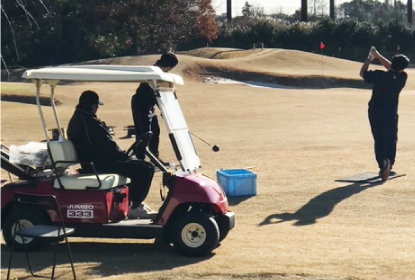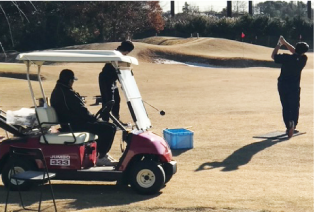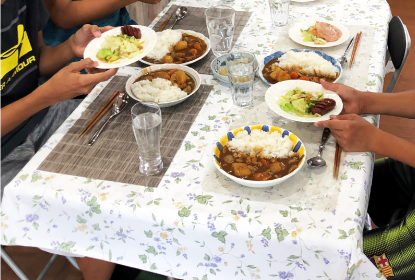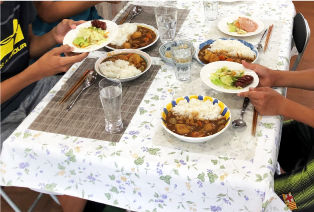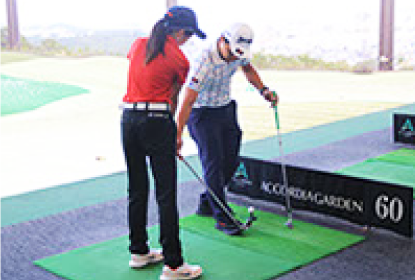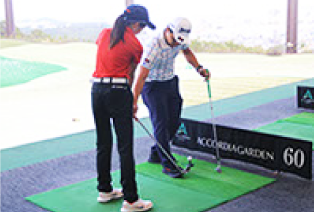- Group Companies and Affiliates



We at the Delica Foods Group will contribute to realizing a sustainable society that aims for growth for a better future.
The Delica Foods Group has been making a wide variety of efforts to contribute to achieving the SDGs and to conduct ESG activities. Our Group's business is deeply related to themes that lead to higher sustainability, including agricultural support, environmental conservation, and health promotion through daily eating activity . We will create a sustainable business of fruit and vegetable distribution and strive to help attain the global goals.
The Delica Foods Group will create a sustainable business of fruit and vegetable distribution through the five themes given below, aiming to make the best use of vegetables, bounties of nature.






We will expand our distribution business to boost fruit and vegetable consumption and promote agricultural growth, contributing to building a sustainable, carbon-free society.
Boost consumption
Agricultural growth







As a result...
The Delica Foods Group’s growth will support Japan’s agriculture and also help contribute to building a carbon-free society.
The Delica Foods Group’s offices across Japan have been striving to save energy at their factories. An example of such efforts is the "Project for Introducing a Cooling System That Uses Temperature Difference Energy Based on Cold Energy in Drainage Water". Cold energy in water discharged from the precut vegetable production line is used to reduce the power consumed by the chiller (a liquid cooling device), which enables energy saving and cost reduction. This system has been introduced to Delica Foods Co., Ltd. Tokyo Office and Kanagawa Office so far, causing Tokyo Office to save energy usage by 36% and reduce electricity costs by 2.72 million yen per year.


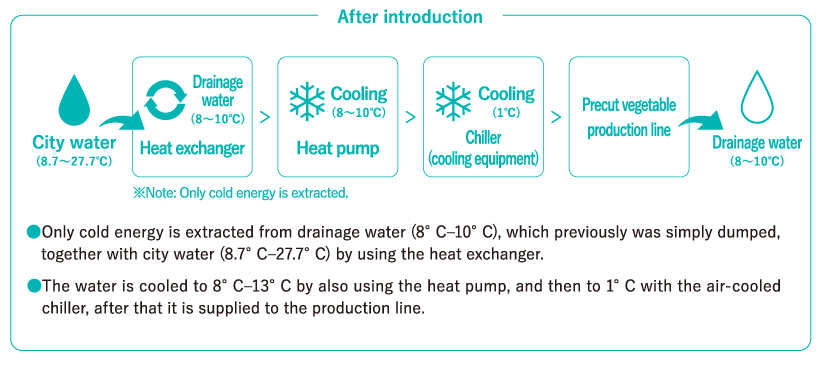
Tokyo Office has also introduced a photovoltaic power generation system that utilizes the rooftop space. In the event of a power outage, the system can supply electric power through the dedicated outlets in the office building. Tokyo Office has worked on energy consumption reduction not just for the environment issues but also for more efficient operation of the office.

As a fruit and vegetable wholesaler, we have been actively working to reduce food waste and loss, which is considered a major problem here in japan.
The vegetable residue recycling system reuses vegetable waste (which is produced every day) into compost with the help of microorganisms, and takes the compost to grow agricultural produce. With a project for introducing the system, we aim to promote food recycling business activities. This system has been introduced at five offices nationwide, and the Tokyo Office processes about 11 tons of vegetable waste per day, which also reduces the amount and processing costs of the waste.

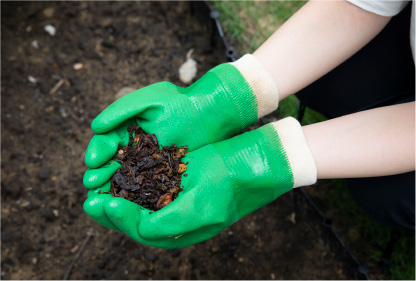
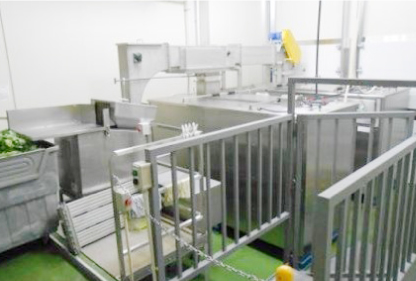
Delica Foods Co., Ltd. and Medical Seikabutsu Institute Co., Ltd. have been selected as members of a joint research project publicly raised by the Space Exploration Innovation Hub Center, the Japan Aerospace Exploration Agency (JAXA). In this project called the “Self-recycling Hydroponic System for a Resource Circulation Society (Space Exploration Technology of the Local Production for Local Consumption Type),” the two companies collaborate with four industrial, public and academic organizations: JAXA, the National Institute of Advanced Industrial Science and Technology (AIST), Chiba University, and Ryonetsu Kogyou Co., Ltd. Taking advantage of their different strengths, we will work in closer cooperation to carry out the project.
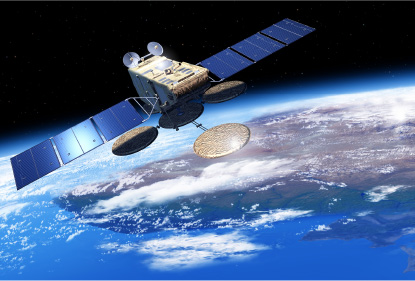
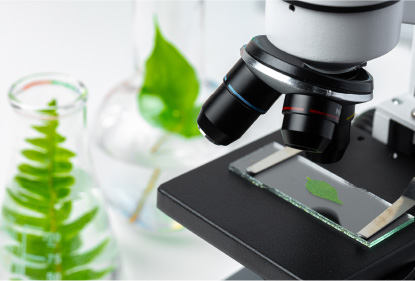
Delica Foods Co., Ltd. holds a morning market every three months as part of its regional contribution activities. It takes place mainly in each office’s parking lot or a local park. Young employees in their first to third years take the lead in holding the market; they are responsible for the entire process, from procuring vegetables and handing out leaflets to attract visitors to selling the vegetables at the stand on the day of the market and doing the accounting. The company sometimes sets up a booth at a local event in collaboration with a local merchants’ association. This morning market sells seasonal vegetables at reasonable prices and is always crowded with local residents. All the proceeds are donated to the local government to serve the development of the region.
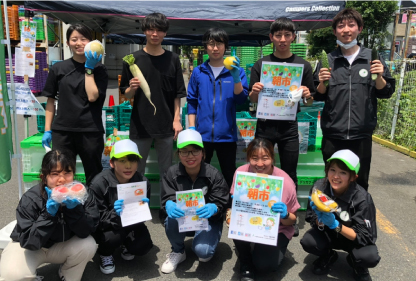
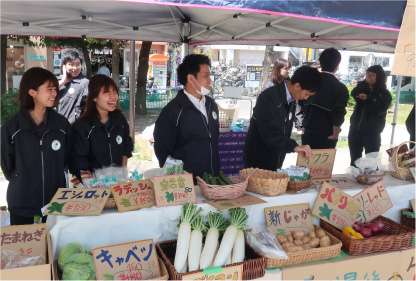
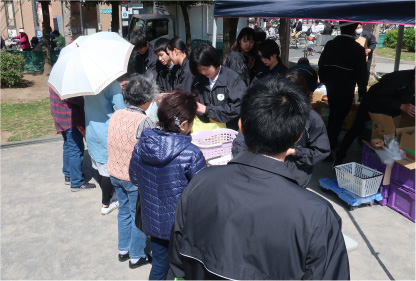
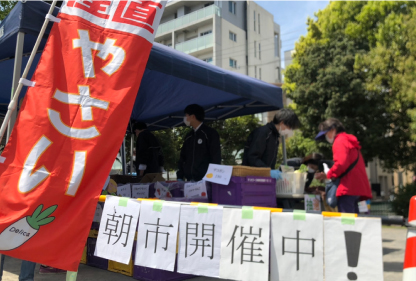
The Delica Foods Group holds Yasai Juku (vegetable school), or study sessions to deliver even better vegetables. We invite lecturers from various fields to give special lectures and seminars, and actively share information. These sessions also serve as opportunities to make new proposals regarding vegetable distribution and new products, aiming to revitalize the entire industry. Yasai Juku also introduces vegetable dish recipes devised by Delica Foods, and has its guests sample the dishes. The dishes feature seasonal flavors and offer wonder and pleasure.
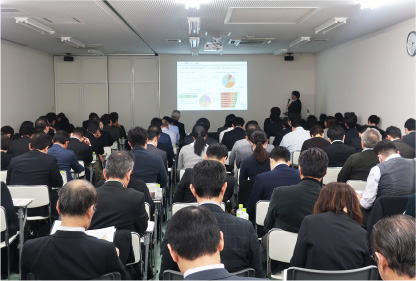
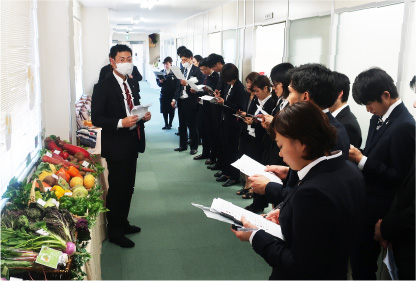
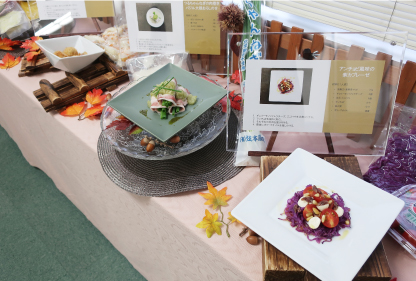
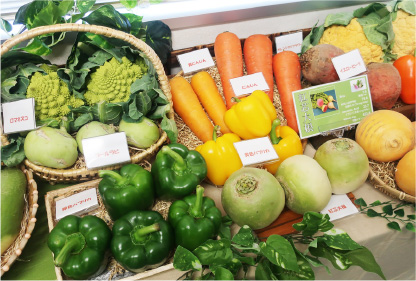
Japan is facing a declining birthrate and an aging population. In recent years, the sports population is also declining year by year.
The Delica Foods Group provides nutritional support by delivering fruits and vegetables to support the development of the next generation of athlete
